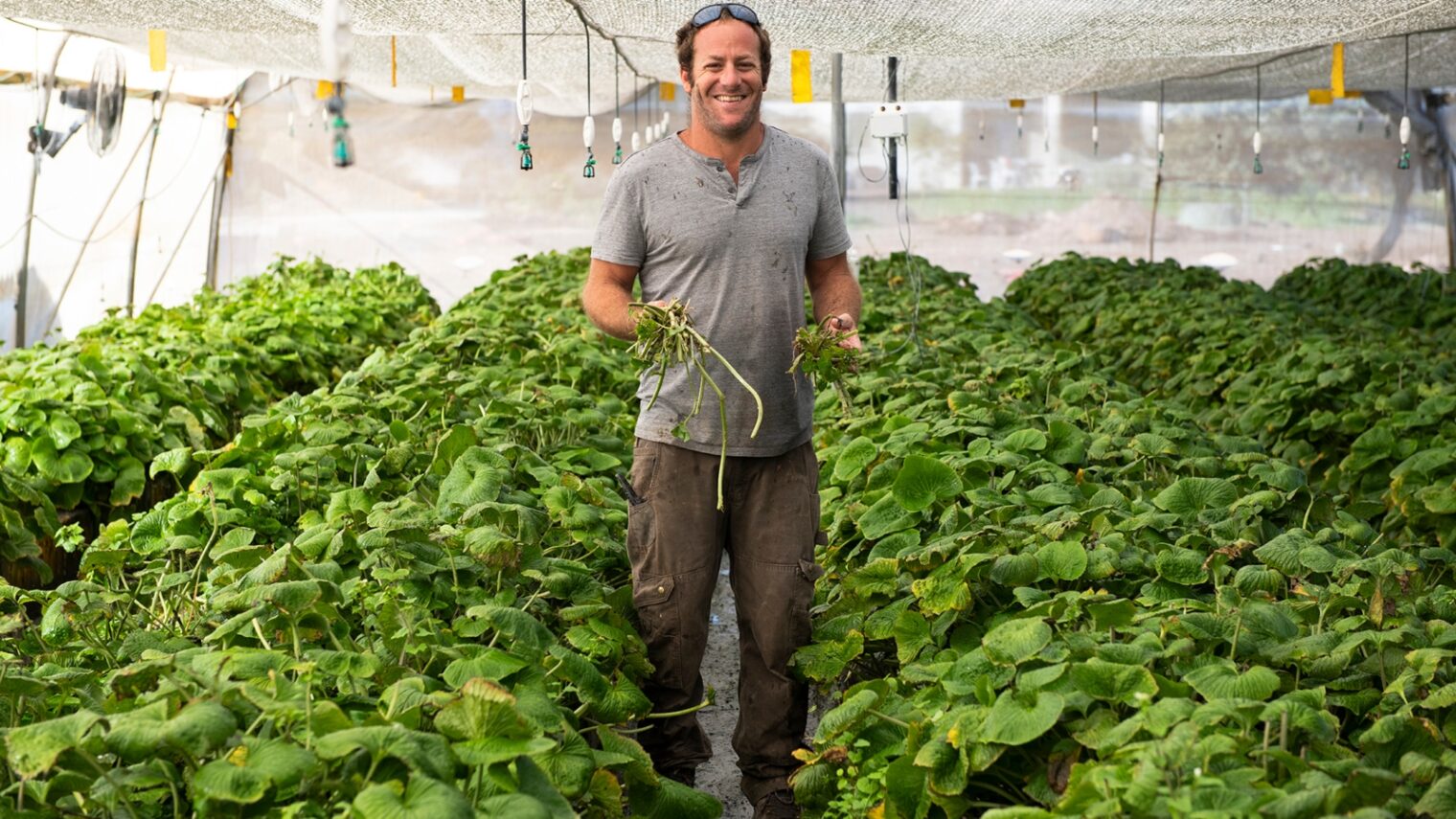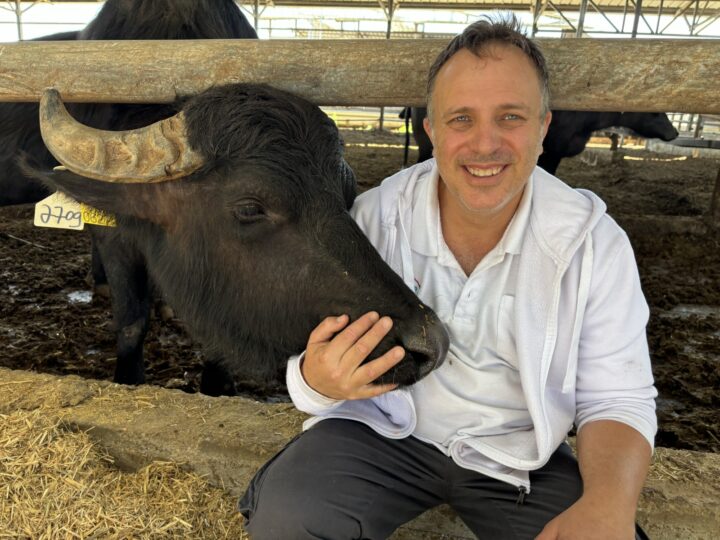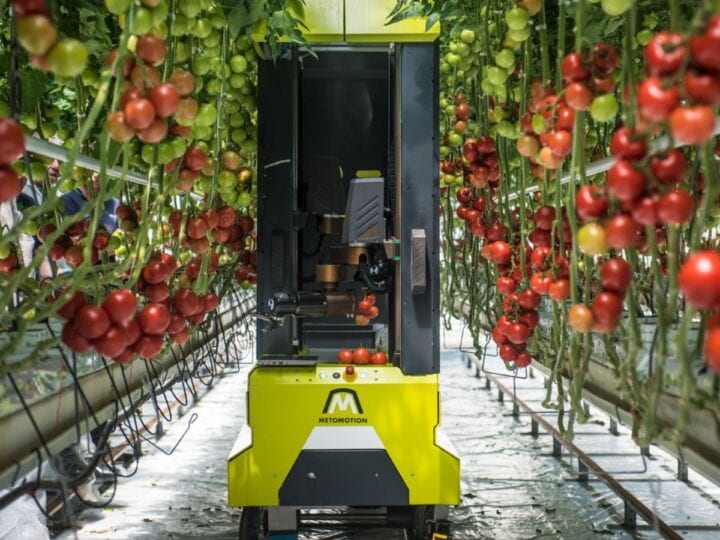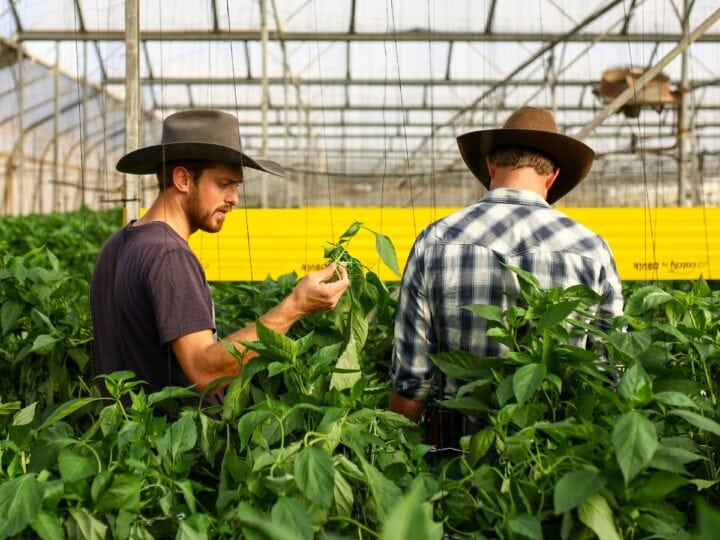Bet you didn’t know that the fiery green paste that comes along with your sushi, what’s referred to as wasabi, is almost certainly not the real thing.
This imitation is probably a mix of mustard, horseradish and green coloring and not from the grated root of wasabia japonica, which grows indigenously in Japan and is farmed in a very select few places around the world — including Israel.
This unexpected piece of information is told to ISRAEL21c by Ran Ronen, the only wasabi farmer in Israel.
Wasabi is one of the slowest and most challenging plants to grow, which also makes it expensive, according to Ronen. A kilo is sold for the equivalent of about $370 in the United States and is similarly priced in Israel.
Ronen, 40, started Wasabi Israel six years ago. Before embarking on this project, he owned a solar panel business. He had never been connected to farming despite having grown up on a moshav (agricultural village). But then, he and his wife decided to move north to Moshav Eliad in the Golan Heights.
“I always dreamed of farming one day. And I have a belief that if you want to do something meaningful you need to start something new and challenging,” he says.
A Japanese secret
The idea to farm wasabi came from a friend who piqued Ronen’s curiosity: “Here was a plant that was the most difficult to grow and I had to find out why this was so.”
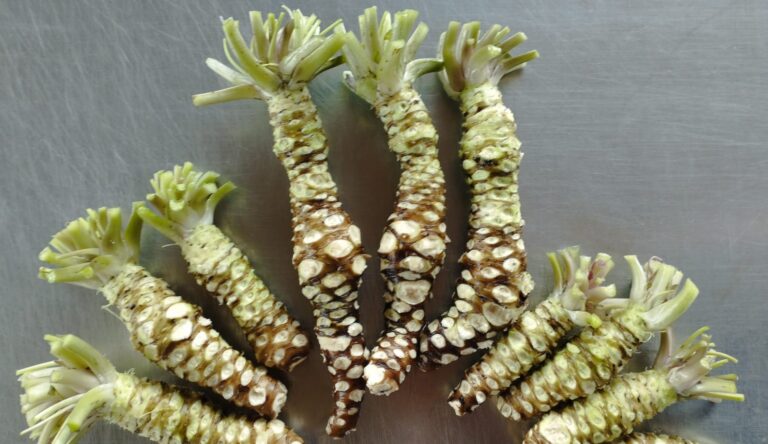
He started reaching out to Japanese agricultural bodies and quickly discovered that wasabia japonica is considered a heritage plant (as the name implies) and the farming practices were kept secret.
He then turned to online research.
“Google how to grow tomatoes and you will get all the information you need. With wasabi there was one doctorate dissertation from 1967 and very few farmers listed as growing it and even then, no information on why it’s such a sensitive plant to grow and how to overcome this,” says Ronen.
In Japan, wasabi grows in the stony riverbeds of mountainous valleys where the air temperature is between 8-20°C (46-68°F) and out of direct sunlight.
“The English farmer I found online had a stream in his backyard, the Polish one was farming alongside a forest stream and here I was thinking about trying to grow it in the Middle East where summer temperatures reach 40°C,” Ronen recounts.
Undeterred, he decided he would proceed in “startup nation style” and use intensive agricultural methods. This meant cultivating the plants in a greenhouse and using climate control technologies.
First harvest
The next step was to source plant material so that farming could begin.
After much effort, Ronen managed to get a permit from Japan to buy wasabi tissue culture. From this, seedlings were grown and the wasabi farm was started on a half-dunam plot of land (about an eighth of an acre).
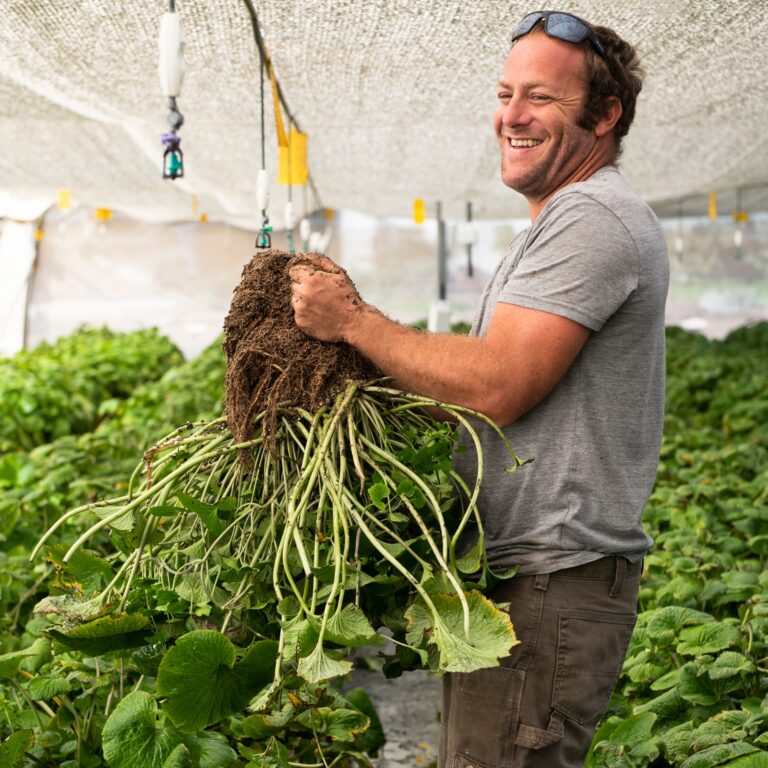
Wasabi Israel’s first harvest in 2020 unfortunately coincided with the pandemic.
“I had to delay supplying the chef restaurants whom I thought would be a major market, as they were not operating. Then I got the word out through social media and foodies got to know us and started to order.”
To these individual buyers, Ronen sells a small amount of around 40 grams to use in a similar way to truffles.
“You need to add it to a sandwich or mashed potatoes, and it changes everything. It’s like tasting something you have never ever had before.”
Today his kosher, fresh “green gold” can be found in upmarket chef restaurants around the country, with the aim to export.
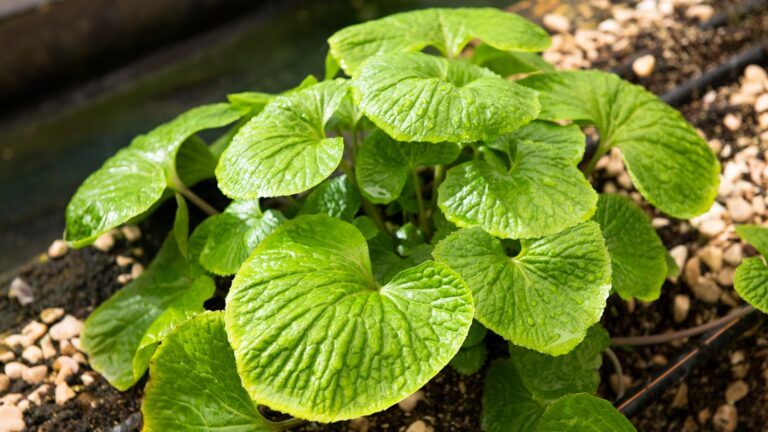
Is it the real thing?
Ronen has some tips for knowing if what you are eating is real wasabi.
“It is not just something that hits you in the nose. It starts off sweet in your mouth and then goes up your nose. The heat then goes down to your stomach. It’s amazing.”
In Japan, Ronen explains, wasabi is used in many types of dishes including meat barbecues.
Making a paste with the correct taste requires the right timing and the right tools.
“In restaurants it should be prepared as a customer orders and then served within 15 to 20 minutes; otherwise it loses flavor. To get the true effect you have to grate it and the best way to do this is with shark skin, which feels like sandpaper,” Ronen explains.
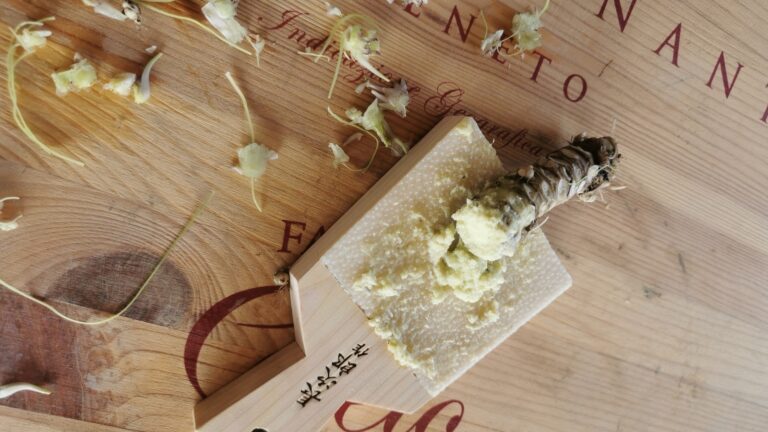
“If this is done correctly the flavor will be unbelievable … if not, it will be like eating a spicy carrot.”
The Wasabi Israel farm has more than doubled in size since its founding, and Kibbutz Merom Golan has become a partner in the business.
Agronomist Nir Ruben has been brought onboard to tackle the challenges of this unusual plant.
“Our aim now is not only to supply our local market. Who knows — one day we may even export to Japan if climate change affects their yield,” Ronen states with optimism.
For more information, click here




